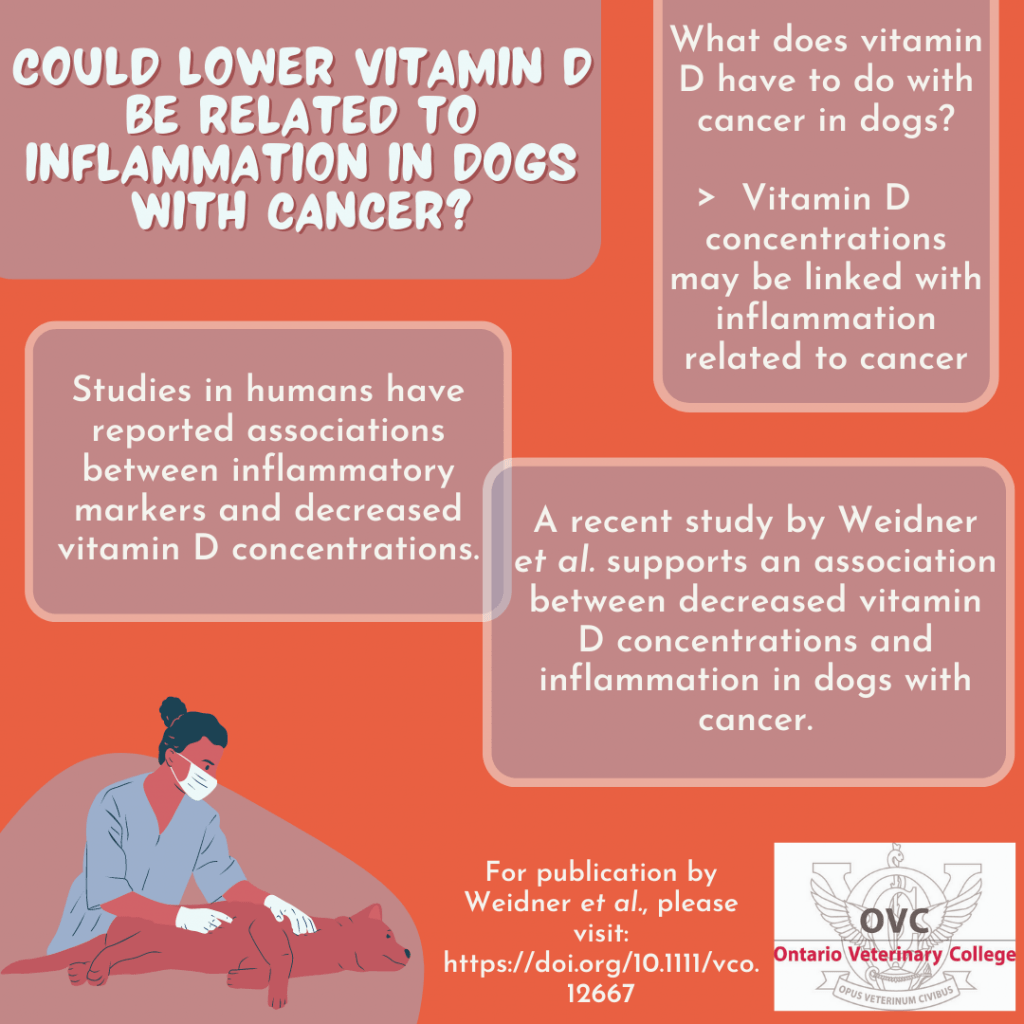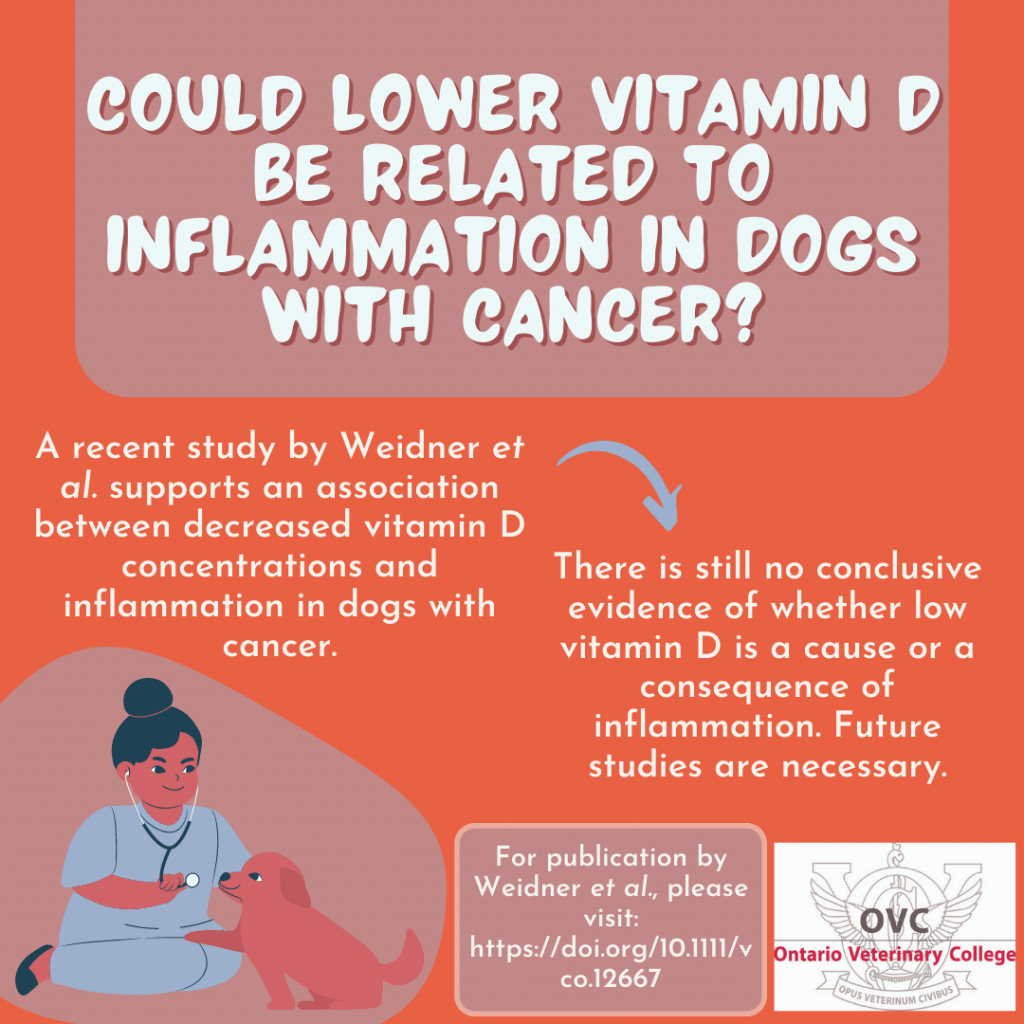Congratulations to PhD candidate Nicole Weidner on her recent publication, Plasma 25-hydroxyvitamin D and the Inflammatory Response in Canine Cancer!
Lower levels of circulating vitamin D have been reported in dogs with a range of diseases, but it isn’t always clear whether this is a cause or consequence of the disease. Links between lower vitamin D concentrations and inflammation in humans suggest inflammation related to the disease may play a role.
It could be that inflammation related to the disease:
1) Lowers blood vitamin D concentrations
2) That vitamin D may help decrease inflammation and disease risk
3) A combination of factors

Weidner et al. set out to investigate possible correlations between blood vitamin D concentrations and inflammation in dogs with cancer, as inflammation plays an important role in cancer development and progression. Weidner et al observed that blood vitamin D concentrations were lower in dogs with one type of cancer. The dogs with this cancer type also had increased concentrations of multiple inflammatory markers, supporting a relationship between vitamin D and inflammation in dogs with cancer. Future studies are required to continue investigating the link between vitamin D and inflammation as currently there is no consensus on whether low vitamin D is a cause or consequence of inflammation.

Important note: The average blood vitamin D concentrations of all groups of dogs in this study still fell within the laboratory’s reference range for healthy dogs, so this study should not be taken as evidence that additional vitamin D supplementation is necessary in dogs with cancer. Dogs receiving appropriate amounts of an AAFCO-compliant commercial dog food should be receiving recommended amounts of vitamin D from the food.
We advise checking with your veterinary healthcare team prior to making any changes to your pet’s diet.
Written by:
Veronica Fursova
Edited by:
Shoshana Verton-Shaw, RVT, VTS (Nutrition)
Alex Rankovic, BScH, MSc, PhD Candidate
Dr. Adronie Verbrugghe, DVM, PhD, EBVS Specialist in Veterinary and Comparative Nutrition® (Dip ECVCN)


